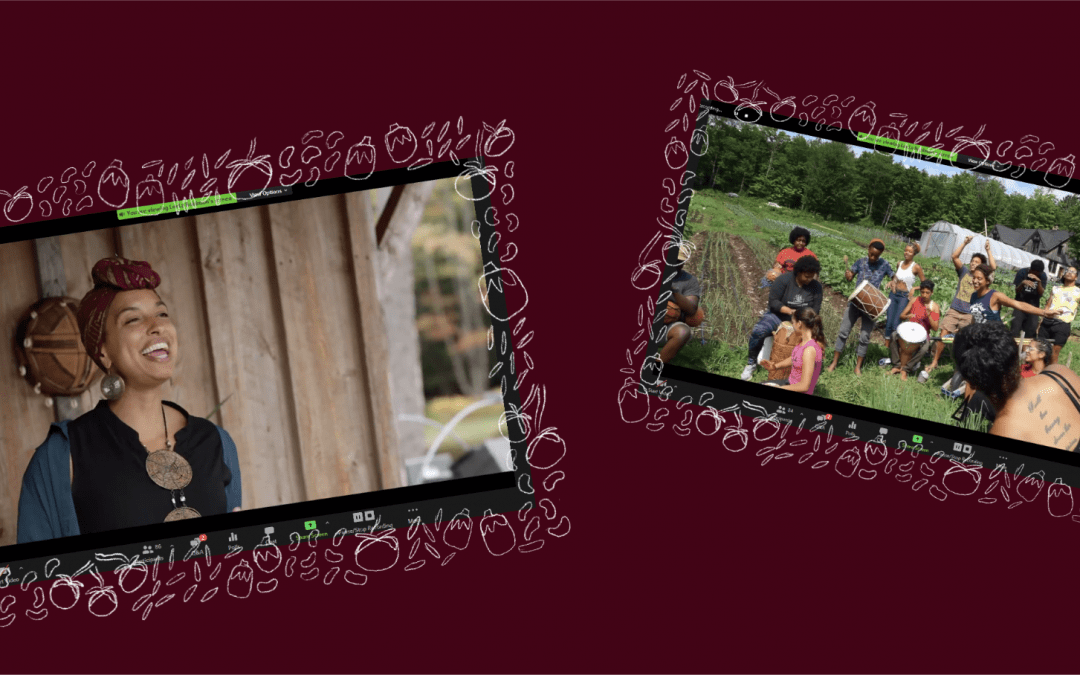African American Food Ways was truly an inspiring presentation. Participants left the event with new knowledge and ideas swirling around their heads, and many felt called to take action to create a just food system.
The event was co-hosted by the Student Farm, CED Club, and MANRRS. It began with an introduction from senior English Dawson, the organizer of the event, who gave the audience questions to ponder throughout the evening.
Next, representatives from MANRRS shared a poem about what it’s like to be a minority in agriculture striving for food sovereignty. The poem served as a gateway to the introduction of Soul Fire Farm and its manager, Leah Penniman. Soul Fire Farm is in the upper Hudson valley and actively promotes food equity through their initiatives, trainings, workshops, and other programs that focus on diversity and empowerment.
In a compelling film, Leah discussed the complex history of American agriculture and land ownership. She pointed out that the system is plagued by racism in nearly every aspect, which has caused the percentage of black farmers to decrease from 14% to approximately 1% over the past century. Leah pointed out that disconnection from land was not the reason for this rapid decline. Many African Americans still feel a connection to the land that’s been passed down from their ancestors; however, biased legislation and redlining has made it extremely difficult for minorities to keep land ownership. The result of this bias is that nearly 98% of land in the United States today is owned by white people.
The discrepancy in land ownership and inequality in the food system inspired Leah to co-found Soul Fire Farm. She said that “to be truly free, we must feed ourselves,” and explained that the farm’s mission is to empower oppressed people to do that. Through various programs, Soul Fire Farm provides produce for those who need it most, as well as trains and inspires the next generation of black and brown farmers. Leah discussed a few of the programs in more detail and explained why they are important to the local community.
In a live Q&A, Leah mentioned the work being done around the country and world to empower minorities in agriculture. Soul Fire Farm is just one part of a huge network of activist farmers who are striving to change the agricultural system. Leah pointed out that a great way to contribute to these efforts is by supporting your local black and/or Indigenous led farming organizations. By doing so, you will support the people who are impacted by inequality as they lead the fight for change.
Another way to influence the agricultural system is through policy. By researching injustices and contacting your representatives about them, you can help spark widespread reform. Leah recommended looking to the HEAL Food Alliance and the National Young Farmers Coalition to educate yourself about agricultural policy and needed changes.
An interesting moment in the Q&A was when Leah discussed the impact of COVID-19 on minority farmers and society as a whole. She said that this moment has the potential to be a punctuated equilibrium, meaning that life after this will not be the same as before. If this dramatic period causes people to reflect on humans’ relationship with the earth and with each other, we may come out of this pandemic with new ideas about how society should function. Consider your role in the food system and the role of your ancestors. How can you take steps to change our agriculture for the better?
If you missed African American Food Ways live, don’t worry! You can watch a recording of the event by clicking the button below. The full recording will be available through December 21, 2020.

